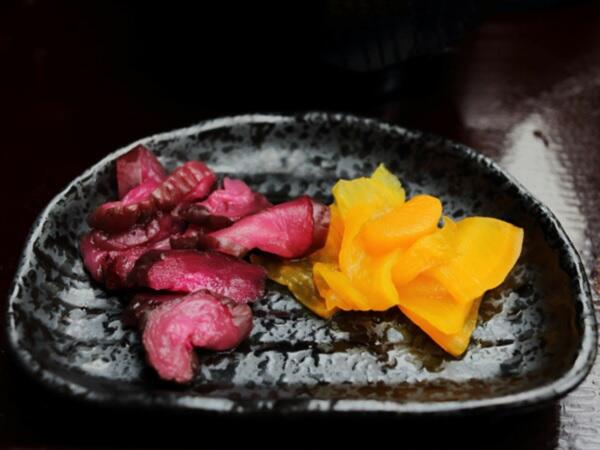A joint research team led by Associate Professor Takuji Yamada of the School of Life Science and Technology at Tokyo Institute of Technology and Gurunavi has clarified the changes in, and role of, the microbial communities derived from vegetables and other ingredients during the fermentation process of "Shibazuke," a traditional fermented eggplant pickle dish produced in Kyoto. The findings are expected to contribute to the development and production of high-quality, highly functional fermented food products and were published in Microbiology Spectrum.

Fermented pickles are made by spontaneous fermentation using microorganisms naturally attached to ingredients and other materials without artificially adding specific microorganisms. This spontaneous fermentation process entails technical difficulties in maintaining quality with high reproducibility because the plant-associated microbiota varies depending on the ingredients used and the pickling conditions. Furthermore, it is also difficult to identify environmental factors affecting the growth and metabolism of microorganisms and determine the levels of their effects.
Previous studies have often focused on the microbial communities involved in the production of fermented pickles using spontaneous fermentation as case studies, but detailed studies for identifying microorganism interactions and influencing factors in the complex ecosystem of pickles are scarce. However, because the taste and aroma of fermented pickles are formed by fermentation, understanding the microbial ecosystem of fermented pickles is critical to improving the quality of products.
The research group used Shibazuke samples produced by spontaneous fermentation, and a reproducible model was developed in this study to clarify how the microbial communities derived from raw materials and other sources change and what effects they have on the components of the pickles. First, they analyzed changes in the microbial communities of commercially produced Shibazuke samples and found that the microbial communities changed differently depending on the production lot.
From this, they constructed an artificial microbial community based on the average microbial community observed in the initial stage of Shibazuke fermentation and used it for the fermentation of sterilized eggplant juice. During this process, changes in the microbial community, the effects of environmental factors, and changes in metabolites were analyzed in detail.
The results showed that the microbial communities changed in a highly reproducible manner, but the changes observed in the model using the artificial microbiota did not fully agree with those observed in fermented pickles. They considered that the difference was presumably due to whether the raw material was solid vegetables or liquid vegetable juice, but further research is needed to confirm this. They also suggest that the salt-tolerant lactic acid bacterium Lactiplantibacillus plantarum is involved in the increased production of, in particular, glutamic acid and alanine, further deepening previous findings.
The methods used in this study can be applied to other fermented foods made using spontaneous fermentation and help raise the standard of quality control in the commercial production of traditional fermented foods. Specifically, the safety of foods can be enhanced further by allowing for accurate determination of the dynamics of microorganisms during the fermentation process and inhibition of the growth of undesirable microorganisms. Moreover, understanding and applying spontaneous fermentation as a phenomenon mediated by a group of various bacteria may contribute to the development of new fermented foods. Although reproducing the same taste every time in the production of fermented foods using spontaneous fermentation is sometimes difficult, the findings of this study will increase the likelihood that consumers will be able to enjoy the "usual taste" in a stable manner.
Journal Information
Publication: Microbiology Spectrum
Title: Influence of the initial microbiota on eggplant shibazuke pickle and eggplant juice fermentation
DOI: 10.1128/spectrum.00464-24
This article has been translated by JST with permission from The Science News Ltd. (https://sci-news.co.jp/). Unauthorized reproduction of the article and photographs is prohibited.




